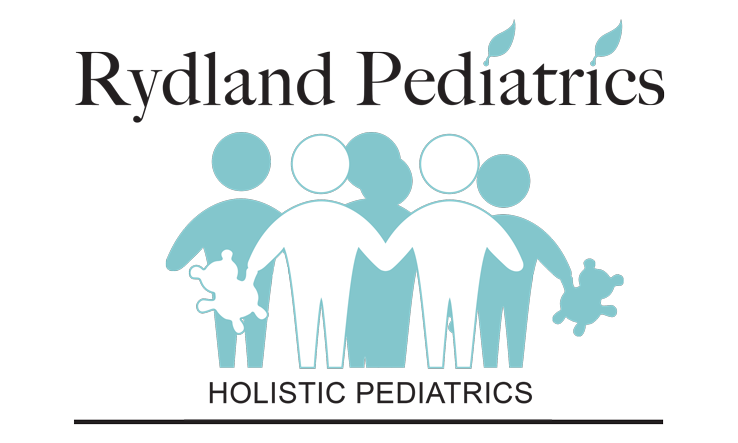What Is Holistic Pediatrics?
The last two decades have seen a rapidly growing interest in the field of holistic medicine. Unfortunately, this growth has mostly ignored and abandoned our children. Parents experience enormous frustration when approaching their children’s medical needs from a natural viewpoint. They typically aren’t in a position to determine what is safe and effective for their children. They don’t feel comfortable making these decisions, many times, because they feel they might be responsible for any adverse consequences.
Conflicting advice abounds in the media, in written materials and on the internet.
The medical community, for the most part, has cautiously embraced “alternative” medicine concepts for adults and sometimes for older teens, but mostly overlooked children. Conventional pediatric medicine and pharmacy continues to add more medications and vaccines in an ever-increasing effort to control illness and keep children well. Most pediatricians either don’t see the futility of the “band-aid” approach to medicine or are too busy to properly evaluate their practice of medicine. Conventional pediatrics today doesn’t look for many of the adverse effects of the medications and vaccines they prescribe or use and are not even aware of the consequences. Since this is the choice treatment for conventional practices it emphasizes the need for holistic intervention to counteract the side effects and chronic issues caused by these medications.
It is uncommon for the average pediatrician to see serious repercussions from the medication that they prescribe. The pharmaceutical companies continue to produce and market stronger medications for those situations that commonly confront children, mostly because the milder drugs eventually have a progressively decreasing efficacy. For example, in treating infections, milder antibiotics with fewer side effects like penicillin, erythromycin, ampicillin, and amoxicillin were commonly prescribed years ago. The bacteria have largely become resistant to these milder antibiotics, which since have largely been replaced by stronger and more potentially serious antibiotics, now necessary to combat the bacteria in both mild and more serious infections. At times these bacteria have even become resistant to all known antibiotics.
In reality, though, what medicine fundamentally fails to recognize, is that the immune system, competent to conquer the vast majority of infections on its own, is undermined by the use of antibiotics. This is because these drugs are used to treat the infection instead of allowing the body’s natural defenses to combat it, and also because the antibiotic dramatically reduces the population of healthy bacteria, a necessary and integral part of a properly functioning immune system, normally present in the intestine and elsewhere. Avoiding unnecessary antibiotics and replacing these naturally-occurring healthy bacteria, therefore, along with dietary modifications to reduce immune and adrenal stress is vital to avoid the vicious cycle of antibiotic use and repetitive infections.
Another familiar example is the use of medications to control school learning and behavior. Over 11% of our school-aged and up to 4% of preschool children are consuming a daily dose of one or more medications because of their inability to properly behave, learn and integrate into the educational system. At the same time schools are serving and vending nutritionally inadequate and chemical-laden foods, a frequent precipitating cause of the behavior aberrance. Children often cannot function because of their improper and inadequate diet, nutritional deficiencies, widespread digestive disorders and overloaded detoxification and endocrine systems. Often the solution is as simple as correcting diet and blood sugar, thyroid conditions or giving nutritional supplements. Drugs are, at best, a temporary solution, not a permanent answer and may lead to pharmaceutical dependency
The problem is compounded by a medical care system largely paid for by insurance companies and governmental agencies that reimburse poorly, inducing a well-intentioned physician to cut corners, making office visits as brief as possible in order to keep their office open and pay their expenses. Even if he or she would know how to approach the condition and look for the underlying cause there often simply isn’t enough time as present day insurance companies do not reimburse physicians adequately for their time
Currently, education regarding the treatment of causation, not just symptoms, for children is sorely lacking. Almost all of the “alternative” education is either not readily accessible or focused on the adult patient. For the rare physician who wishes to indeed help their patient with minimal conventional medications the challenge is daunting. In reality there have only been a handful of pediatric physicians willing to consider and then few will practice non-conventional or “alternative” medicine.
For millennia we have been advised to “first do no harm”. In medicine the “first” should indicate the pregnancy and early years of life. We have physicians, midwives, nutritionists and a whole cadre of practitioners that care for the pre-pregnant and pregnant mother. Once the baby is born, however, the state of affairs immediately changes, as we begin a plethora of vaccines, antibiotics, baby formulas, dietary and environmental chemicals, etc. The pediatrician, unlike any other physician is in a position to begin life in a positive, drug-free manner and this has been the way I have practiced medicine since 1981.
I would encourage parents everywhere to educate themselves and make informed choices in their children’s health care. Begin with the proper diet and environment and then consider what effects recommended chemicals and medications may have. Don’t be afraid to ask questions about the necessity of medications. It is through those questions and the challenges of parents over the years that I have been able to learn and apply principles that have allowed me to avoid most medications in my practice. Medications are occasionally necessary in potentially serious and life-threatening situations. They must be judiciously used and then balanced by the use of biological and nutritional supports to minimize their short and long-term effects on the body.
It is my belief that no one knows their children better than their parents. I have based my way of practicing medicine on this and therefore focus on educating you, the parents, on how to effectively care for your children. Together we work as a team and can accomplish that vibrant, optimal health and functioning.
Eric N. Rydland, M.D.
Upcoming Events
- No Events
WHAT OUR PATIENTS ARE SAYING
Testimonial 1
How I wish I weren't writing this and that by some feat of providence we could have brought you with us to Texas – I don’t know if I’ll ever have the confidence and esteem for another pediatrician that I felt when consulting with you about Frank’s health. Thank you so much for being there when we needed you! Again thank you for everything!
Testimonial 2
Sheri, Hollywood
Sheri, Hollywood
Testimonial 3
Elizabeth, Miami Springs
Elizabeth, Miami Springs


